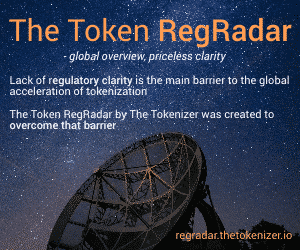Financing legal cases have historically been the preserve of the super rich, but blockchain is about to change all of that.
By Andy Christen, Co-Founder, Chief Vision and Operations Officer at Liti Capital
One of the foundational principles for blockchain, and more recently DeFi, has been the promise that financial products and services be for everyone with an internet connection. So far, so good.
Derivatives, swaps, futures trading, access to pre-public sales of company stock or tokens, and other services historically the preserve of the wealthy, have all been opened up to early crypto adopters.
Nearly half of millennial millionaires have at least 25% of their wealth in cryptocurrencies, according to a recent survey by CNBC. More than a third have at least half their wealth in crypto.
But this seismic shift in the availability of financial products and services is just getting started. There are still whole industries that are ripe for disruption at the hands of distributed ledger technology. One of which is litigation financing.

What is litigation finance?
In a nutshell, litigation finance is when a third party invests in a lawsuit in exchange for a share of the profit.
In return, if the case is won, the funder receives an agreed share of the proceeds of the claim. If the case is unsuccessful, the funder loses its money and nothing is owed by the litigant.
The idea is that a good legal claim is like an asset. It is worth money, but there are risks. The case is only worth something if you win. If you lose, investors lose their money.
Historically, having anyone other than the direct parties fund a lawsuit was prohibited: to stop powerful actors financing cases to disrupt their competitors. The legal term for this is known as champerty.
However, in 1993 that all changed when New South Wales, a state in Australia, rolled back its antiquated champerty laws. Sensing an opportunity, entrepreneurial investors started financing cases in need of funding and taking a cut of the profits, and an industry was born. Since then, litigation finance has spread to the UK and the US and flourished as a result.
Today, according to one recent study, there are as many as 40 funders across the world actively financing legal cases. Collectively, they have approximately $10 billion in capital, and in the past year have spent close to $2.5 billion investing in cases. Why has it proved so popular? The return on investment is huge.
Doubling Returns for Investors
Litigation finance funds see returns of 50-100% year over year, according to Steven Friel, author of “The laws and business of litigation finance”. By comparison, the S&P 500 has returned an annualized 8.7% since January 2014.
Additionally, because hedge funds using litigation finance don’t follow market trends – if anything they tend to do better during economic downturns – they are particularly attractive to investors looking to diversify their portfolios.
However, not everyone can access litigation-finance funds, because you need to be an “accredited investor.” That is, you must have at least $200,000 in annual income, a net worth above $1 million (excluding your home’s value), or joint annual income with a spouse of more than $300,000. This is where blockchain comes in.
Tokenizing litigation finance
On top of the high financial entry barrier, there are fees associated with managing these funds which eat into profits, and capital is often locked away for long periods of time, with investors unable to pull out their money before the fixed term is complete. A blockchain product however, can operate without those constraints.
A tokenized litigation finance fund wouldn’t incur the same operating costs as a traditional pool, freeing up investors’ cash to be focused more tightly on financing legal cases.
In addition, a tokenized fund would spread the risk of funding cases that didn’t win, meaning investors receive the aggregate gains rather than incurring losses on negative outcomes.
On top of that, by creating a token that is freely available and tradeable on exchanges, it allows more people to take part in this lucrative asset class, without having to verify their credentials as an accredited investor.
Blockchain’s mission to democratize the world of finance is gathering pace, and litigation finance is primed to be the next industry to be disrupted.
Photo by Bill Oxford on Unsplash







